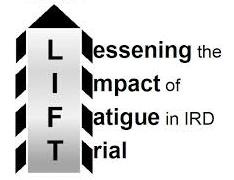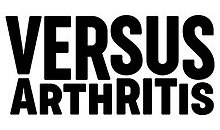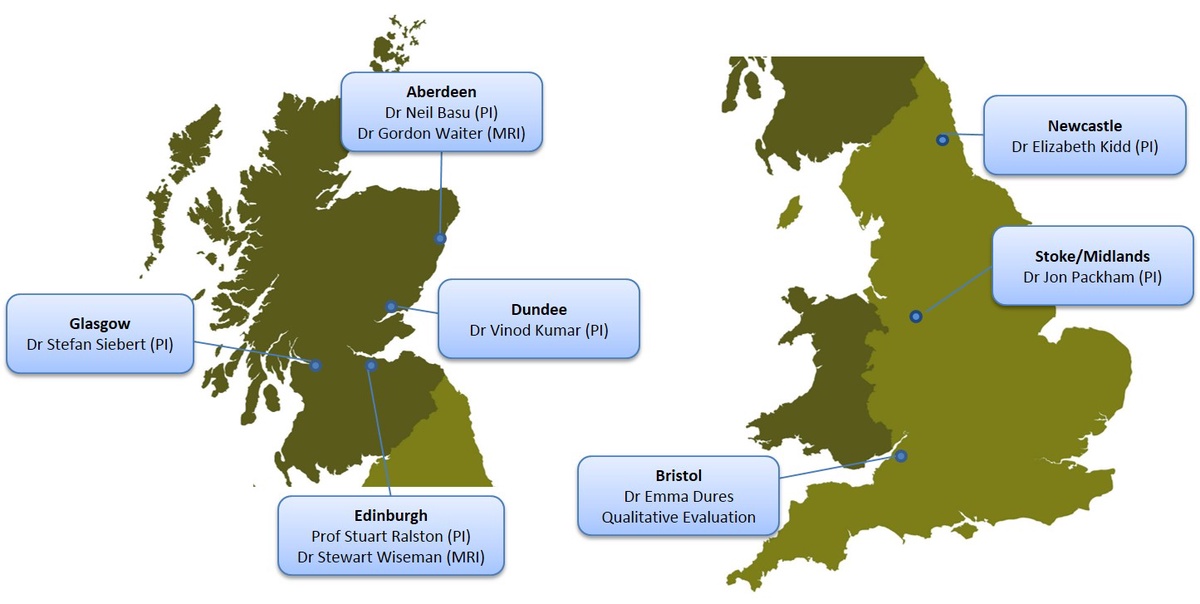

Duration: 01 August 2016 - 31 October 2021
Funder: Versus Arthritis (formerly Arthritis Research UK)
Chief investigator: Professor Gary Macfarlane
Co-chief investigator: Dr Neil Basu (University of Glasgow)
Study Co-ordinator: Dr Marcus Beasley (formerly Dr Eva Bachmair)
Fatigue is pervasive, disabling and challenging to manage across all inflammatory rheumatic diseases. Therapies designed to improve physical activity and 'talking' treatments, which positively help patients change the way they think and behave, are both helpful in reducing the burden of the fatigue. However, few patients have access to these treatments in the NHS. We also don't understand how these treatments work or which patients are most likely to benefit. This information could help to improve future treatments making them more efficient.

Further information
- Background and study methods
-
With LIFT, we wanted to find out if a talking therapy (CBA) or personalised exercise programme (PEP) was better than usual care alone in helping you to reduce the impact of fatigue.
We recruited 368 adults aged 18 and over with inflammatory rheumatic diseases who experience significant fatigue from our six study centres in Aberdeen, Dundee, Edinburgh, Glasgow, Newcastle and Stoke-Midlands. People who were suitable to take part in the study were sent a letter by their direct care team. Recruitment started in August 2017 and concluded in September 2019.
Participants received either a talking therapy plus usual care, a personalised exercise programme plus usual care or usual care alone.
Some participants who received either talking therapy or the exercise programme were invited to take part in an interview with researchers to discuss their experiences with the treatment after completing the programme.
More information about LIFT is available, here .
- Follow-up
-
Some participants who received either talking therapy or the exercise programme were followed up and invited to take part in an optional interview with researchers to discuss their experiences with the treatment after completing the programme.
- Intervention materials
-
The following documents were used in the delivery of the intervention:
- What has the study found so far?
-
You can read the main results of the study here:
- Bachmair et al. Remotely delivered cognitive behavioural and personalised exercise interventions for fatigue severity and impact in inflammatory rheumatic diseases (LIFT): a multicentre, randomised, controlled, open-label, parallel-group trial. The Lancet, 4(8), E534-E545, August 2022
A Plain Language Summary for this paper is available here .
A qualitative evaluation of patient experiences taking part in the trial are reported here:
- Bennett SE, Almeida C, Bachmair EM, Gray SR, Lovell K, Paul L, Wearden A,Macfarlane GJ, Basu N, Dures E; LIFT study team. Remotely delivered cognitive- behavioural and personalized exercise interventions to lessen the impact of fatigue: a qualitative evaluation . Rheumatology Advances in Practice, 2022 Jun 25;6(2):rkac051.
A Plain Language Summary for this paper is available here .
The health economic evaluation of LIFT is reported here:
- Chong HY, McNamee P, Bachmair EM, Martin K, Aucott L, Dhaun N, Dures E, Emsley R, Gray SR, Kidd E, Kumar V, Lovell K, MacLennan G, Norrie J, Paul L, Packham J, Ralston SH, Siebert S, Wearden A, Macfarlane G, Basu N; LIFT Study Group. Cost-effectiveness of cognitive behavioural and personalized exercise interventions for reducing fatigue in inflammatory rheumatic diseases . Rheumatology (Oxford). 2023;62(12):3819-3827.
You can read the study protocol below:
-
Martin et al. Protocol for a multicentre randomised controlled parallel-group trial to compare the effectiveness of remotely delivered cognitive-behavioural and graded exercise interventions with usual care alone to lessen the impact of fatigue in inflammatory rheumatic diseases (LIFT) . BMJ Open vol. 9,1 e026793. 30 Jan. 2019
- Bachmair et al. Remotely delivered cognitive behavioural and personalised exercise interventions for fatigue severity and impact in inflammatory rheumatic diseases (LIFT): a multicentre, randomised, controlled, open-label, parallel-group trial. The Lancet, 4(8), E534-E545, August 2022
- Study team
-
Chief investigators
- Gary J Macfarlane - Chief investigator
- Neil Basu - Co-chief investigator (University of Glasgow)
UoA staff
- Kathryn R Martin - Co-investigator
- Paul McNamee - Co-investigator
- Eva-Maria Bachmair - Study co-ordinator
- Graeme MacLennan - CHaRT team
Co-investigators
- John Norrie - Co-investigator (University of Edinburgh)
- Alison Wearden - Co-investigator (University of Manchester)
- Karina Lovell - Co-investigator (University of Manchester)
- Richard Emsley - Co-investigator (Kings College London)
- Lorna Paul - Co-investigator (Glasgow Caledonian University)
- Stuart Gray - Co-investigator (University of Glasgow)
- Stefan Siebert - Co-investigator (University of Glasgow)
- Sarah Hewlett - Co-investigator (University of West of England)
- Emma Dures - Co-investigator (University of West of England)
- Study sites
-

- Contact us
-
This study has now finished - but you can contact the epidemiology team about this study on their group email: epidemiology@abdn.ac.uk
